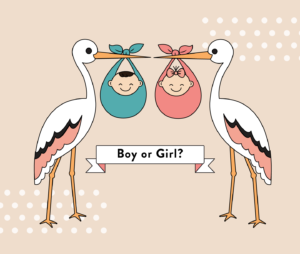
“Tell me about your baby” isn’t a taboo question for a parent who has lost their baby. It may help them with their grief.
Some people naturally shy away from a baby loss mother in the initial stages of grief for fear of saying or doing the “wrong thing”. It is obviously important to be guided by the person who has experienced the loss and all personalities are different, but below are some suggestions that either helped me or, having been through what I have been through, I think would help. I think, most importantly, it’s good to remember that just as they say it takes a village to raise a child, it takes a village to mourn one too, so be there for the grieving parents in any way you can.
Read more: “No Heartbeat”: The Grief of Losing My Unborn Baby
1. Be their “person”
If you know you are probably the closest person (other than their partner) to the person going through the loss, be sure to ask them how you can be there for them. This is especially important if you are living away from home where there might be no family around. Even if they have a doula, you still might be that person they need and with all that’s going on, they may not think to ask or even know what they need, so offer if you feel it’s appropriate. We went straight to my best friend (and godmother to our children) Kate’s house after we found out there was no heartbeat, and she came to us and packed my hospital bag for me when I was unable to focus on anything. I am also so glad that Kate met our baby right after she was born. Whilst no one can have a complete understanding, being this involved from as soon as we found out means that she had a proximity to our loss and what we went through that has resulted in her being a pillar of strength to both Simon and me.
2. Leaving the hospital
One of the things that really sticks in my head is sitting in reception of the hospital waiting to pay our bill. What was probably 20 minutes felt like an eternity. I had given birth 8 hours earlier and was leaving the hospital with no baby in my arms, whilst other families around me left the hospital with their new little bundles of joy. I sat and sobbed with the babies’ cries ringing in my ears. If you have a loved one who you know will need to go through birthing a still baby, it is worth suggesting that they request to pay the bill in their room so they can exit the hospital without lingering – this would have reduced my pain.

3. Reach out to the mama, then reach out to her again and again and again
Nothing that you will say in those early days will make her feel better, but let her know that you are thinking of her. Even if it just an SMS with a kiss. Then follow up on that message to check in with her and keep following up. I barely responded to any messages initially but, I just needed people to take the burden of responsibility from me and keep checking in until I felt up to responding or actually doing something.
Read more: Resources for Miscarriage and Pregnancy Loss in Singapore
4. Try to understand what she will be going through
I think this is especially so if you’re a mother. Remember all the afterbirth stuff you went through, like blood loss, engorgement, post pregnancy body, and crazy hormones? She will be going through that too, but without a teeny baby to distract her. Remind her that what she has done is incredible. Childbirth in itself is incredible, but birthing a still baby requires an inner strength that needs an exceptional amount of support and love.
5. Let her tell her story
I am so grateful to those people who have sat and listened to my story and asked to see photos of Summer. I needed to tell people from start to finish, every single detail from finding out there was no heartbeat to giving birth to having her cremated. I think this is partly an attempt to get people to understand what we went through but (probably more so) it really helps. It is cathartic for me to go over it, and talking about Summer is the only way to keep her memory alive. So one of the greatest gifts you can ever give is to say to her “Tell me about your baby” or “Can I see a photo of her?”. You can preface it with “Would you mind…” and if she does mind, it gives her the option of saying no.
Kate combined the two things above by coming over one afternoon with cupcakes (because everyone needs cupcakes) and ice packs to relieve my engorgement. She made cups of tea and we chatted for hours about Summer. Another evening she came over when I had had a particularly tricky few days and we had dinner, a few glasses of wine and again, mostly chatted about Summer and my grief. When she was leaving, I apologised that it had basically been all doom and gloom; she commented on the fact that it had been a lovely girls’ night – me, her and Summer – and that Summer was welcome to our chats any time. Just heart-warming.

6. Be your friend’s social protector
We were pretty public with our announcement but some people wouldn’t want to be. So ask if your friend needs you to tell anyone to take that burden from her. A lot of people I know were messaging Kate for daily updates on how I was doing. She fed through the lovely questions and words to me at a time when people really didn’t want to be putting pressure on me to respond.
When your friend is up to going out again, be her wing woman. Always look out for her in social situations and gently steer her (or the conversation) away if she is looking uncomfortable. Small talk is tough when you have been hit by a big trauma. Keep an eye on her wine glass, too – a lot of alcohol and grief don’t mix well.
Big group events can be super daunting so be accepting if she needs to cancel plans and just stay home or ask her if she’d come if you did something small instead. Her grief will be changing daily – sometimes forwards, sometimes backwards.
7. Help with the small things
In the days after we lost Summer, Kate knew that I was barely eating as I just couldn’t stomach anything. One night she had gently suggested that I try something like soup or noodles. The next day Deliveroo arrived at lunchtime with a bowl of pho each for my husband and I – exactly what we needed, and we were so touched.
She also took our children regularly, as did my parents-in-law who were staying during the first few days. I found it really difficult spending time with my children and they certainly didn’t help to “ease my pain” like some people assumed they would. I was fine when they were giving me cuddles and being sensitive to my grief but, at 5 and 3 they (naturally) didn’t do that for long before everything became about them again and I couldn’t cope with that. There were days when I just needed my husband to myself and I didn’t want to share him with my children. I felt a lot of guilt around this, so having people take them out of our house really helped to ease that guilt which is an additional burden at a time where there is so much other emotion going on.
8. Give the mama permission to be selfish
Let her know it is ok to be incredibly selfish and do exactly what she needs to do, for as long as she wants (this is still me 6 months post-loss). Some days she will feel like she can take on the world again and all is fine, then a day later she won’t want to move from her bed and will need to cancel all plans for that day. And that’s ok.

9. Remember her difficult dates
Put “key dates” in your diary and set a reminder to tell her you’re thinking of her particularly on those dates. Some that will likely be particularly hard (each month) are the date she found out there was no heartbeat and the date the baby was born/died. Another one is the baby’s due date – if you don’t know exactly what date it was, ask her, she will likely appreciate even being asked.
One thing I quickly discovered is that there are new meanings to some “special” days, so it would be good to try to acknowledge that may be the case. My eldest turned 6 on February 2nd, which was about a month after we lost Summer. I found his birthday incredibly hard – all I could think of was the horribly different outcome of my last labour compared to the one with him and the fact that we would never celebrate Summer’s birthday in the same way. We also barely acknowledged Mother’s Day this year. I am so grateful to have my living children, but the pain at not having Summer here was still far too raw for me to want to celebrate too much; the arts and crafts my little pair gave me were enough.
10. If you see something that makes you think of your friend or her baby, let her know
Friends and family have messaged me with images they have come across and tagged me in Instagram posts, TED talks about grief and vulnerability, and links to articles about baby loss. These touch me on so many levels – they are usually very helpful, but also just knowing that that person has been thinking about me makes me feel supported. Likewise, I have sent articles and podcasts to my friends and family; if a loss mummy does this with you, be sure to respond to her on them – it is likely that she wants to engage with you on the specific subject matter and she is looking for you to give her a chance to explain to you why they resonate.
11. If you want to buy her something, do
I have had people buy me things and then explain to me why they have bought them, and it always touches me so deeply. One of them was from a very close friend who came to stay just before Summer’s due date. She gifted me a keyring that is now on our car key and both my husband and I love it. It has an angel wing that says “Mummy of an Angel”, Summer’s birthdate and her birth stone. When she gave it to me she said “I really don’t know if this is the right thing to do, but I saw it and thought of you”. Even if it had been the “wrong” thing (which it wasn’t!), I wouldn’t have cared as the thought process behind it all just completely came from her heart and her love and support for me.
12. Do not use “at least”
Remember there are no “at leasts” to baby loss. “At least you already have children”, “At least you know you can get pregnant”, “At least you weren’t full term”. Grief cannot be eased by an “at least”, and a grieving person is not looking for a “silver lining”. If what you are about to say starts with “at least” or is trying to give a positive spin, it shouldn’t be said. Gradually, she may get to the point where she is able to cast a bit more positivity on everything, but it is definitely something to wait for her lead on.
13. Dads grieve, too
Finally, there is also a dad who has lost a baby. Men grieve so differently to women and it means they sometimes get forgotten. My heart breaks for my wonderful husband for the fact that he lost a daughter, but also for what he has been through. He told me that as my pain ramped up during labour and I talked about it getting too intense to bear, he had a moment of panic where all he could think was that he couldn’t lose me as well as our baby. He also found the cremation extremely confronting and traumatic. All of this is scarring and, on top of this, men try to hold everything together – my husband certainly did, for me and our kids.
So don’t forget the dads – talk to them and let them know you are there for them too.
Read more: Resources for Miscarriage and Pregnancy Loss in Singapore
 View All
View All


 View All
View All


 View All
View All

 View All
View All
 View All
View All


 View All
View All






